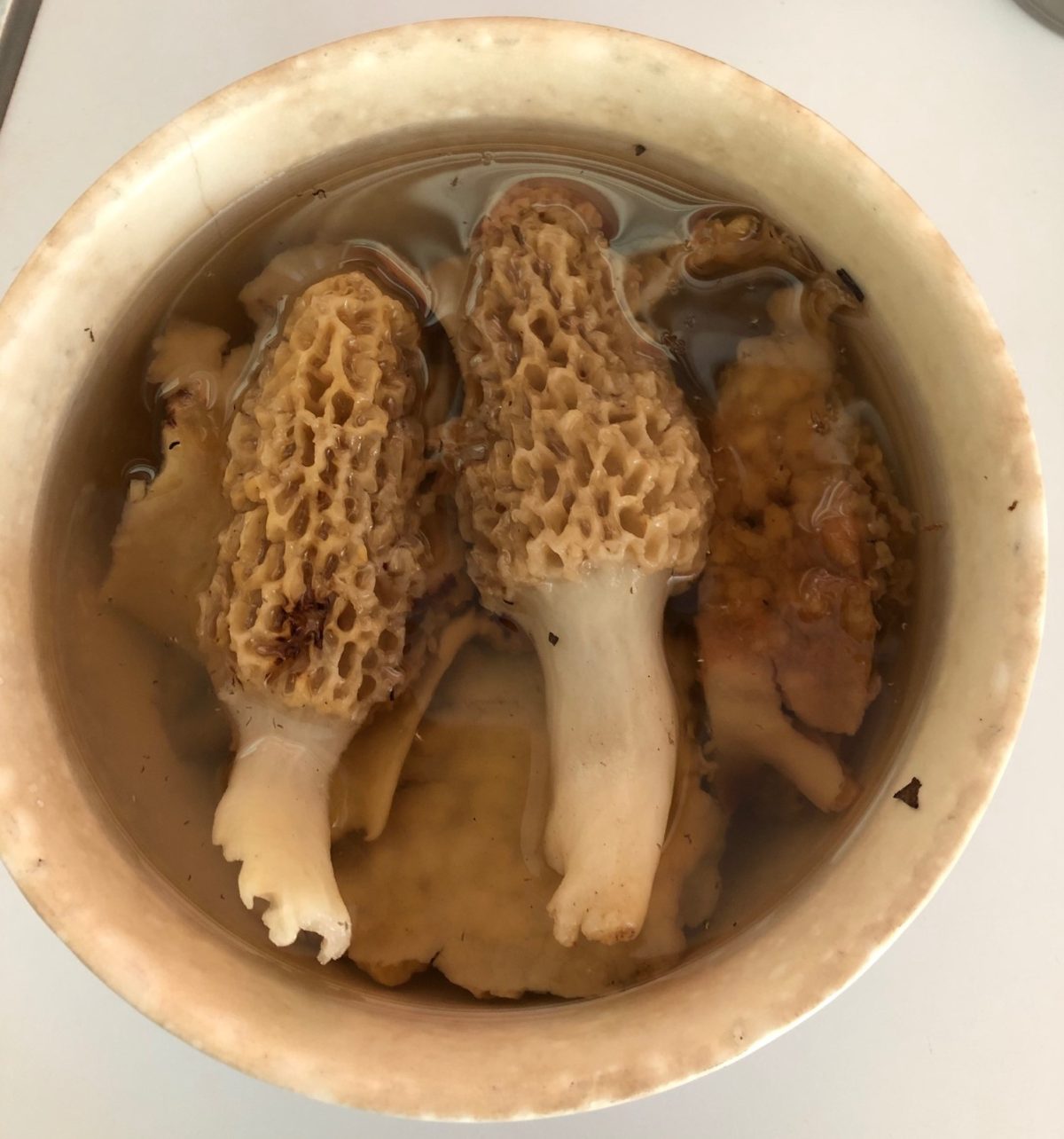Every Spring, people trudge through the woods with their eye to the ground sporting a sack or a bucket in which to store these treasurers. They grow in the woods when the ground begins to warm. A true sign of Spring – Morels. Mushroom hunting is a yearly event. I say event as some take Morel hunting very seriously. Funny thing about Morels is you either love them or hate them. Dredge them in flour, fry them in butter and I’m a lover. As tasty as Morels are, not all mushrooms are edible, some are deadly and you’ve got to know the difference between the two. Did you know mushrooms are a member of the fungi family? Sounds gross, doesn’t it, fungus cannot be good for you. Technically, mushrooms are the fruit of the fungus – calling fungus fruit doesn’t make it sound any more appetizing, does it?
One thing I learned is that fungi is 90% of living things in forests and 50% of living things in farmland. Another thing I learned is that yeast and mold are mentioned right beside mushrooms as fungi. Weird huh? They are not in the same category but nevertheless they are all listed in the fungi kingdom. They all have their good qualities – think Morels for mushrooms, penicillin for mold and leaven for bread – and they all have their bad qualities – think poisonous mushrooms, inhaling black mold and tummy trouble from too much yeast. The thing about fungi is that no matter what form it comes in it quickly spreads. Mushrooms have spores that are dispersed by wind, water or animals, making more mushrooms. We all know how quickly mold grows, and yeast can completely permeate its surroundings.
Your glorying is not good. Know ye not that a little leaven leaveneth the whole lump? Purge out therefore the old leaven, that ye may be a new lump, as ye are unleavened. For even Christ our passover is sacrificed for us: Therefore let us keep the feast, not with old leaven, neither with the leaven of malice and wickedness; but with the unleavened bread of sincerity and truth.
1 Corinthians 5:6-8 – KJV
That verse six is quite a tongue twister, isn’t it? Yeast is a symbol for sin, and here Brother Paul is talking about allowing sin to exist in the Church. To drill that down a bit, let’s look at where sin in the Church starts – with us individual Church people. Ouch, sorry! Sin is not a word we hear very much about and we’re okay not hearing much about it, right? But, Jesus died for our sins, so it is something we must take a look at. Why? Because it has an impact on absolutely everything around us. We think sin only affects the sinner, the individual, us, but that’s simply not true. You’ve heard folks say “you’re only hurting yourself” and that’s just never a true statement. Our sin touches everything we touch and since our lives are intertwined with others, our sin, in one way or another, touches everything or everyone we touch, directly or indirectly. We will never be sinless, only the Passover Lamb was sinless and He died so we could be sinless, but that doesn’t give us permission to sin. It’s not a pass.
Remember, when we came to Christ, we became a new creation, the old creation fell away. Sin lost its grip on us. We are no longer bound by sin. Hallelujah! It doesn’t mean we won’t sin, it means we are not slaves to sin. It means Jesus has broken our bondage to sin. Hallelujah! With God’s help, we need to look inward and identify the sin in our life – you know, that yeast that spreads. Ouch, sorry! Just as Moses told the Israelites preparing for the Exodus to sweep the yeast from their homes, we need to do the same. But sometimes, looking for the sin in our lives is hard to see, isn’t it? I mean it’s always easier to see the sin in someone else’s life before our own, right?
Biologist Joe Lacefield said: “Morels are pretty camouflaged. You have to develop an eye for it. You have to key in on what you’re looking for. It definitely takes experience.”
Rooting out the sin in our lives is kind of like looking for Morels. We must first identify the fungi. We have to key in on what we’re looking for in order to sweep it out of the house. But, we cannot do that if we don’t first pick up the broom.
